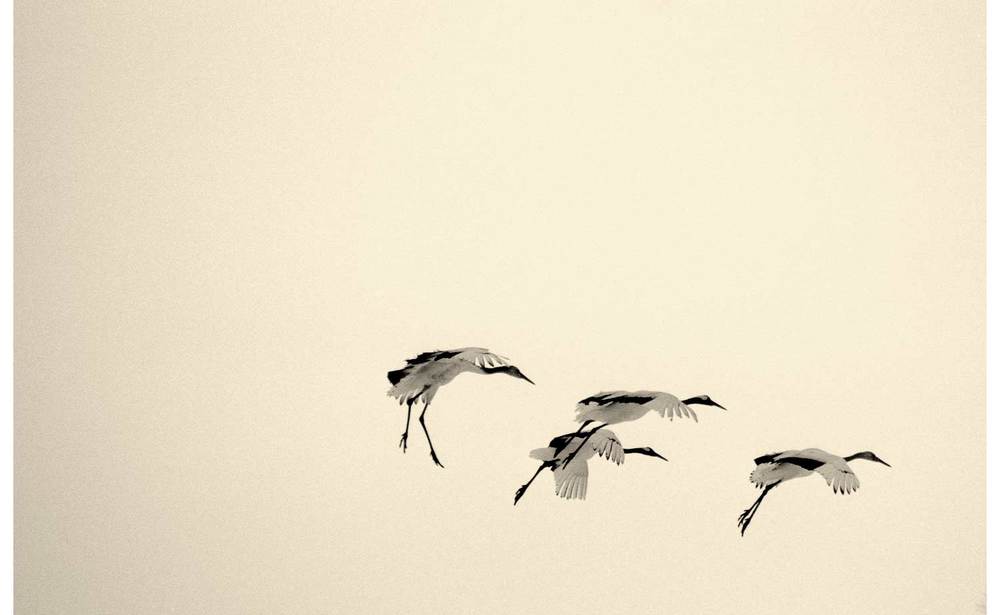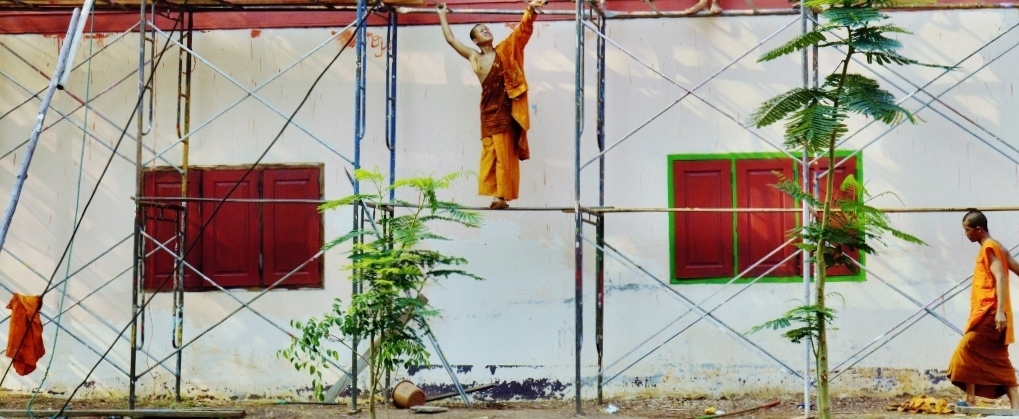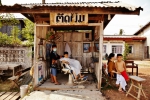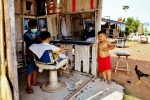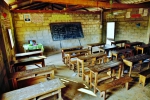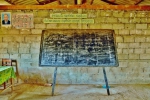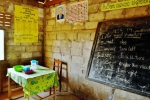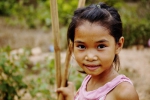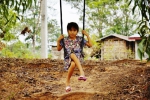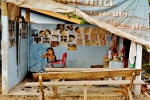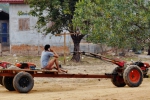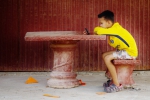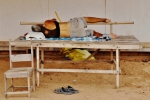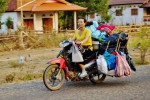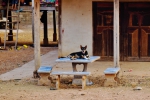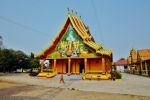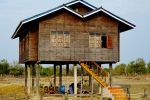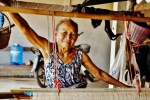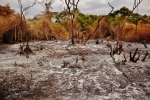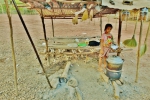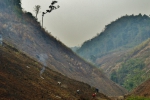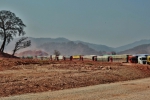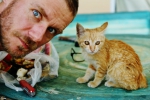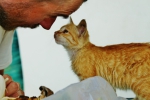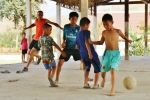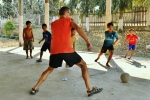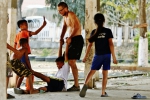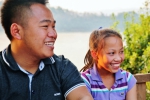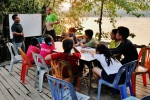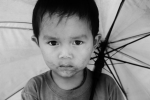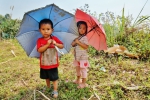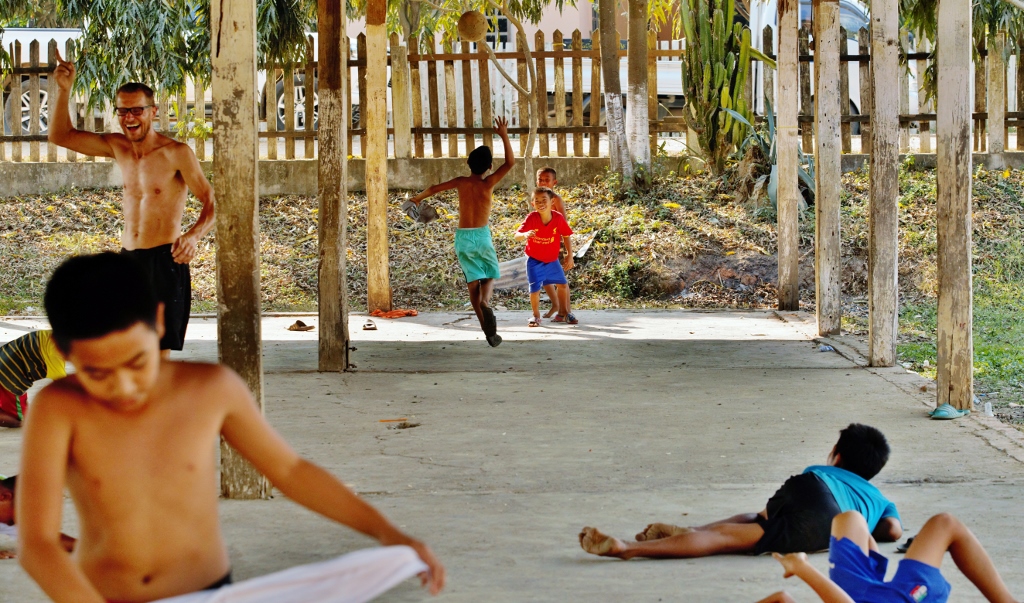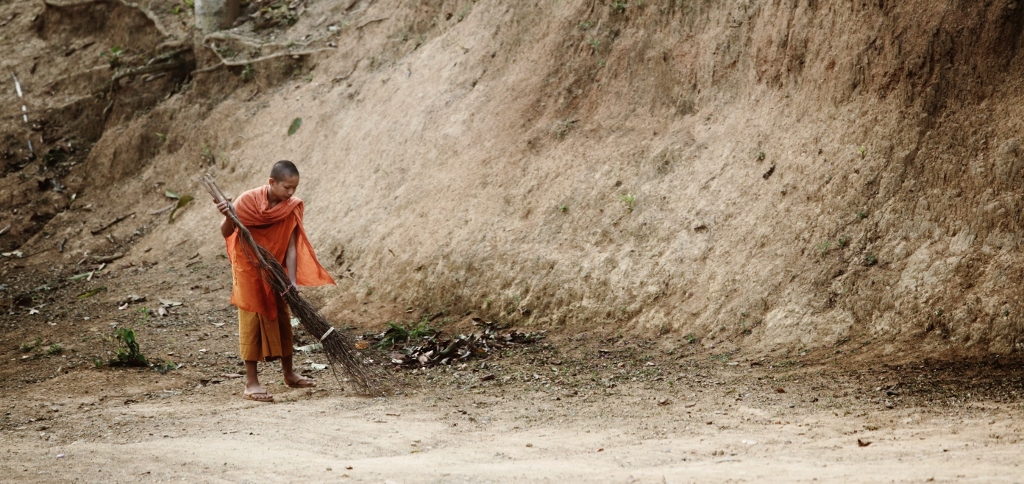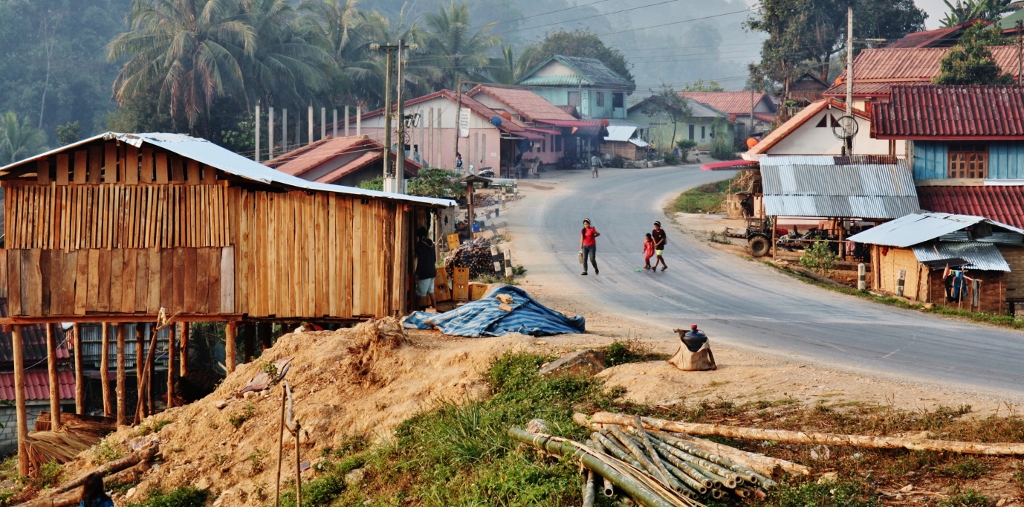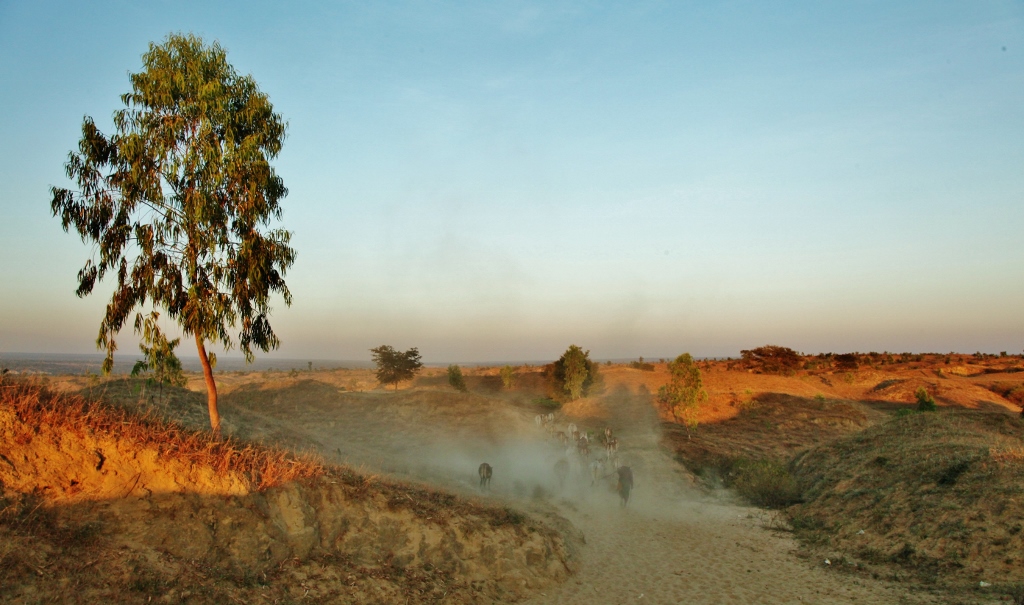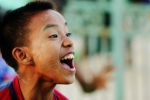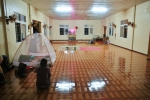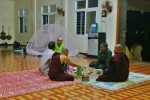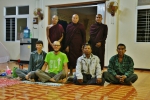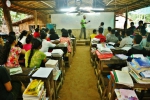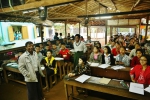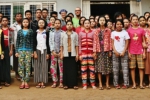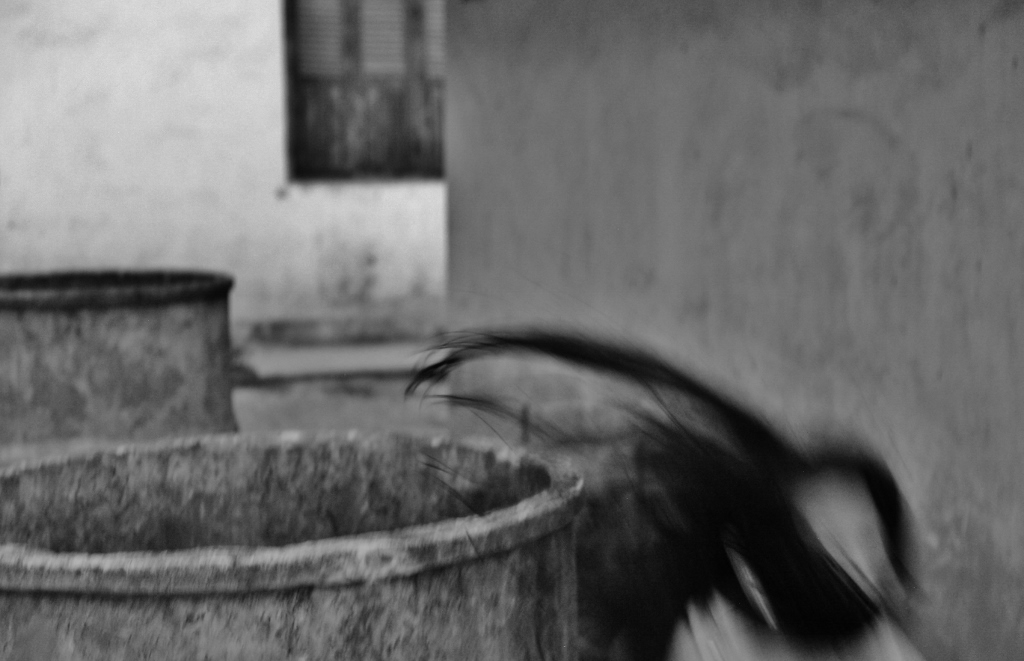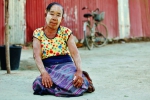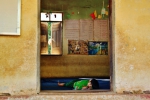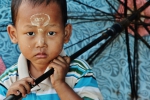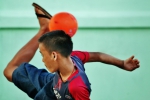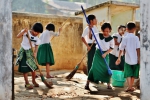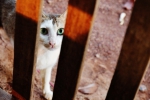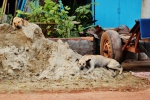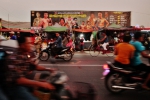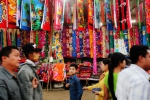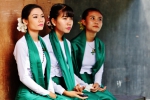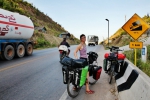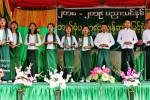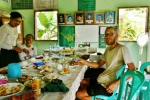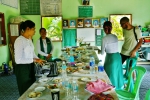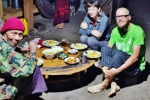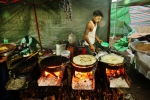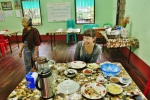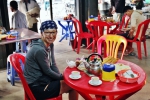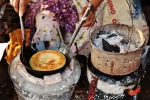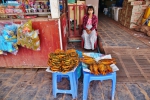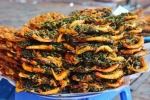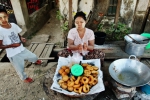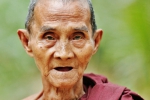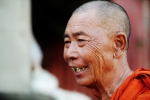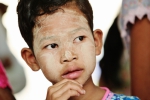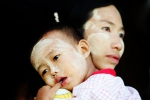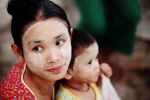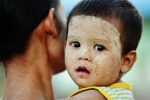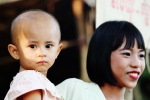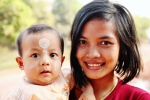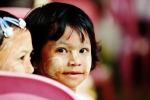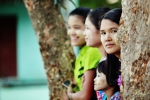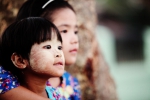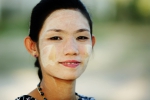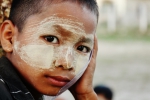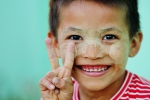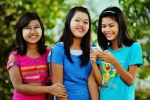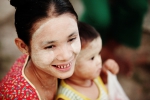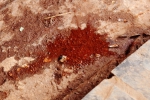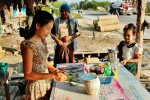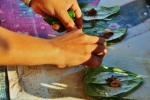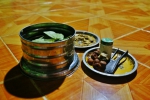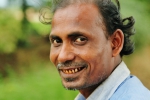Laos by bike part 2 from piotr strzezysz on Vimeo.
Travel prose
Laos by bike
“Writing is, in the end, that oddest of anomalies: an intimate letter to a stranger” Pico Iyer
I have wrote recently that the traveling discourse is either an erotic discourse or none at all. But what if the road fails to delight us? Pass it over in silence? Stop writing? And why assume in advance that whilst travelling, we should marvel at any place, at any experience?
For over a month now, we have been wandering through Laos. It does not seem much, but it is quite a lot of time to get your own opinion about the place you visit. Of course, it will be very subjective and superficial opinion, relating to that sphere of experience, which remains the closest to our way of traveling, that is, to contacts with other human beings. Ladies and gentlemen, I shudder before writing this sentence, hardly persuading myself that someone cares about my opinion at all, but nevertheless I want to express that unfortunately Laos does not impress us at all.
“The abundance of races and languages is the richness given by God, a sign for those who think,” says the Koran. We don’t speak Laotian, neither do we know much about the Laotians themselves. Therefore, if we chose to visit that country, we would gladly learn something about it and try to see how people live in here. But in Laos, with a very few exceptions, almost no one wants to talk to us. We approach local people, greet them in Lao, saying sabaidee, but very rarely someone looks at us, seldom anyone answers.
Once we came to a wedding, but we did not spend a long time there. Once we were invited to school, and local children came closer to us a few times. And actually, that’s all.
That impression of certain emptiness or barrenness, not only on the social level, but also culinary one, we felt immediately after crossing the border, but we thought that apparently we expected too much instead of enjoying the very moment. But nevertheless, something is still missing.
Kids greet us every day, I can’t deny. They wave cheerfully, shouting phalang, phalang, white, white, but it is enough, however, to stop, and the kids run away. Adults, on the other hand, remain distant. So we approach them ourselves, but the distance does not change. The wall remains. Only red cats sometimes jump over it and spread out confidently on our laps.
Needless to say, the indifference of Lao people towards us has its advantages. We may put up the tent by the river or next to the school, being absolutely sure that no one will come quietly at night, no one will wakes us up, nor will disturb in any other way. But, apart from riding a bike, getting to know places, or admiring the landscape, we came here mostly to get to know people. We would like to talk to the Laotians from time to time, even if our mutual vocabulary would end up with a few words. We would like to do something together. Or do nothing. It would be enough just to sit in next to them, on a bench, to look at them and smile. Unfortunately, I regret to write it, but so far, our contacts with the Laotians have been based mainly on absence.
And yet, even in Lao there are moments, when all generalizations and presumptions fail. One may experience real explosions of delight, which sound like a shout after scoring the winning goal.
They said just one word: soccer. Actually, there were three words: soccer and fat boy, although the latter two did not refer to me, but to the only from the entire village obese boy.
The kids did not know where we came from. Poland did not seem to ring any bells neither in their ears nor their minds. They did not hear about Robert Lawandowski, but one more person was missing to the team – the fat boy would not play, anyway. Ana took the camera when I was running around on a roofed concrete square, trying to score the goal.
I never liked soccer. Neither as a player, nor as a fan. But this time I plunged into the game like a happy, innocent child. Maybe because I was doing quite well. And people rather like when they do something well. I would never have guessed that soccer connects people so much, and at the same time, it is able to boost someone’s self-esteem.
I was weak in dribbling, but I made up for it with my height and speed. When the score soared to 5:1, the kids from the opposing team began to lie on the concrete and moaned as if being in pain, pretending to be fouled when no foul has occurred.
One of the boys came closer and I was shown the red card, indicating that I was sent off the pitch. The boys from my team protested, but it did not help much. I left the field and then I got another card. A green one. What it meant, I have no idea.
We sat together on the grass. A few boys and a few girls. We talked with each other in our own languages. The words were rising, the bodies were swinging from smiles, the looks were colliding with each other in the air. It was difficult to keep up with everything.
They suggested going to the river, but we refused and went off to the city. Somehow it was sad to leave.
I do not know what we left behind. Maybe something, maybe nothing. However, it would be nice to think that we left something. That in that journey – which I often say is being done for nothing – maybe this game on the Lao concrete pitch carried some meaning. That it was for something.
Even if no one really knows for what.
Laos. Being in motion.
‘Standing there on the embankment, staring into the current, I realized that – in spite of all the risks involved – a thing in motion will always be better than a thing at rest; that change will always be a nobler thing than permanence; that that which is static will degenerate and decay, turn to ash, while that which is in motion is able to last for all eternity.’ Olga Tokarczuk Flights
Is it possible to write and talk about travel in an objective way? If one were to accept, apart from the degree of consciousness involvement, that being on the road amounts to collecting of impressions and gathering experiences, then any tone of the discourse concerning the journey must be reduced to the description of highly subjective experiences and emotions, indifferently – ecstatic, absolutely uninteresting or even dull. Though the latter, rather nobody will listen.
We’ve been in Laos for three weeks. We are not looking for anything particular here. Then, why you came here, someone maybe ask. A very good question, to which I cannot give any satisfactory answer. I would like to reply that ‘for nothing’, but I assume such a replica would not satisfy anyone. Maybe I will try to be a little more specific and I will add – ride a bike. We came here to ride a bicycle – it sounds the best explanation.
Perhaps it is a sort of infatuation. Not addiction, but infatuation. In traveling. And like every infatuation, it must be transparent.
Maybe we should travel in that way. Transparently. Trusting the inner voice of intuition. Forgetting what the road will bring. Without thinking what we will have to say, to show, or to gain from it. Even if the journey would become just ‘an eternal wandering after illusions, a constant desertion from the present’.
Let’s travel – by bicycle, by canoe, on foot, as we like. Let’s not have one vision of the world, one marked path, one proper version of traveling. And let’s talk about our travels. Those with or without purpose, short, long, distant, or close, with or without support, repeating to the boredom the phrase that traveling is like seeking a fairy tale.
Surely, we will not change the world. The world has to deal with more important problems and it does not care about our stories. But maybe thanks to our words, photos and emotions arousing thanks to them, albeit only for a moment, we will color someone’s dreams.
Burma (Myanmar) by bike part 3. From Bago to Myawaddy
‘Get a distance from the mass media and get rid of what is carried by the black hole of social media. Get to know your neighbors – not only those from your street, city, or village but also from your neighboring country. Read books, laze, and walk. Cultivate rests. Do not have one proper story of the world, because it does not exist. Learn names of trees and birds. Look, touch, smell. Do not aim, do not shoot, do not hit, do not make insults. Dream. Live. Be. Without amen’ – an extract by Roman Kurkiewcz, taken from the Polish magazine ‘Przeglad’
People say the journey is deprived of commonness and monotony. Being alien to mediocrity, it could be opposed to the prose of life, which in turn is usually based on imperceptible, rarely remembered and unremarkable details. “Everyday life is a double-escaping reality. It turns into non-existence and manifests itself unnoticed “, as writes Joanna Brach-Czajna in her book “Szczeliny istnienia”.
It is true that whilst traveling, we do not make beds after waking up. We do not have to iron shirts, clean the toilet, wash the dishes, vacuum carpets, go out with a dog, mow the lawn, and we do not see the same faces and places every day. We do not fall into the routine of repetition, which makes the days elude one after another, without leaving any traces.
But the journey has its own commonness. It is also filled with routine and repeatability. After all, the main part of the day is to cover the longest possible route. Ordinary physical effort. Nothing special. Fatigue, frustration and discouragement are not alien to travel. But this traveling uniformity is very often filled with extraordinary events, alongside with a high degree of unpredictability.
Just as commonness seems to be a background for incoming, extraordinary events, the whole pain on the road is just an outset of what will happen at the next corner. Stop. Look around. Or stay still, do nothing at all. Time will bring the rest.
We left Bago about noon, heading eastwards to the border with Thailand. The evening was coming, and we were trying to spot a good, hidden place to pitch our tent. We got stuck on the road an hour earlier, because we spent too much time looking at the boys kicking the ball. They played chinlone – a traditional Burmese sport played in Myanmar for about 1,500 years. It was first created as a means of entertaining Burmese royalty. Chinlone is heavily influenced by traditional martial arts and dance.
A team of six players moves around the circle (although there is also a tapandaing style, performed by women soloists) gives the ball to each other mainly by kicking, but also using chests, arms or heads. When the ball is on the ground – it is “dead” and the game starts again. There are no winners and losers in chinlone, because teams do not fight against each other. They work together to keep the ball in the air for as long as possible. The most important in the game is style and technique, including hundreds of different moves to maneuver the ball.
We would like to join them, but because it was getting late, we would have had to pitch the tent on the square adjacent to the playground. Unfortunately, as I mentioned in my previous posts, in Burma you can not just spend the night under a tree, or ask someone for permission to stay in their yard. Any tourist in that country is obliged to spend the night in a hotel. What is more, in one that has a license to accommodate foreign tourists (although a few times we managed to sleep in shelters for the locals, for example in Myothit and Taungoo). But what to do when the nearest hotel is thirty miles away and you are not willing to cycle through the night?
If you can afford to spend thirty or forty dollars per room, you do not have to worry about anything. Just put up your tent ostentatiously on any visible, open space. Within a quarter of an hour the police will come and will take you to the nearest hotel. If your budget is modest, you may always try with the monasteries. Only twice monks refused our request. But even then, there was another monastery nearby and finally we were able to sleep next to the Buddha’s effigy.
This time, however, there was no temple in sight, and the bushes did not look inviting enough to try to hide invisibly among them. What’s more, we were not in the mood for playing hosts to uniformed men. The previous night, when we were cycling to Bago, two police cars pulled over and stopped in front of us. On the back of one car we saw bicycles, panniers and two frightened Americans. They were taken to the hotel in Bago after being caught in the bushes. Fortunately, the police did not want us to go with them, so we could choose accommodation in the city by ourselves.
It got late, and we got hungry. We did not cycle long when finally the restaurant appeared. And then it all began. The events thickened.
I do not even remember whether a man came to us when we had already ordered a meal, or whether we first talked to him before sitting at the table. A teacher from the village Nyaung Kha Shay helped us to stay in the monastery.
- The police know nothing about you, but the chef of the village agreed. A year ago, I tried to help one cyclist, but the police did not agree, so now I do not even ask them – he added with a smile.
The head monk decided that the teacher would sleep with us. It is difficult to say whether the man took it happily or just the opposite. He said that he must only ‘call his wife and tell her that he will be sleeping in the temple that night’.
In the morning, accompanied by the monks we ate tea leaves salad in sesame oil called lahpet (also spelled laphat, laphet, lephet, lappet or letpet). It was served with vegetables, nuts, dried shrimps and garlic, and after that we were taken by the teacher to the local school, where we talked about ourselves, and our mother country – Poland.
A moment after saying goodbye to the teacher, the journey re-entered its commonness and took direction towards the next curve, waiting for us patiently. But this is less important. Much more important is what we have left. What images did we leave behind? Did we partially pay back for all the warmth and hospitality we had received? How will the Burmese remember us? Surely they will be, maybe longer than we will remember them.
Burma set the bar high. It will be difficult now not to compare memories we have with those that are about to come. Now we are in Laos, in the new state of non-obviousness. I will write more about it next time.
Burma (Myanmar) by bike part 2. From Mandalay to Bago.
Le poète est celui qui regarde Gide
Everything started with a few sounds. Two minutes later we saw their source. We drove slowly along the school playground, catching curious glances coming from behind a small fence and if it was not for the man who greeted us cordially, we would not have stopped at all. We would have kept on cycling in the scorching sun towards the town called Bago.
We got off the bikes and approached to a friendly-looking man. Having exchanged the Burmese greeting mingalaba (a word from Pali language, roughly translated as ‘auspiciousness’), we broke the ice, and then crossed the gate which separated us from the school courtyard.
Apparently, we came across a sort of graduation ceremony. We left our bikes not far from the gate and stood at a distance from the main stage, on which everything was taking place. Unfortunately, our intention of merging into the crowd, and disappearing afterwards ended up in total failure. Our presence aroused greater interest than the celebration itself.
Although it was the third week of our trip to Burma, we still could not get used to the confusion caused by our unexpected visits. This confusion is so embarrassing that both sides do not know how to behave or what to say. We say something and we try to communicate, but the mutual vocabulary ends in a few sentences. We are able to say hello, we can order tea, ask if food is spicy, we may say goodbye and that’s all. The rest are guesses or speculations.
Often we would like to stay invisible. Very likely, they have similar feelings when they see us. A human being appears, an alien, a stranger (call them as you wish) and suddenly there is an intimate space that will either bring us closer or not. You never know how the meeting will look like. Even when you try to get out beyond your own habits and preferences, when you try not to compare, to evaluate, to judge, even if you do not pay attention to the disgusting-looking dark red spots of saliva on the ground (you see – I could not refrain from that negative epithet) – it is not certain whether you will be accepted by them. Thanaka – a distinctive feature of the culture of Myanmar will not help, either. Even if you paint your face with this yellowish-white cosmetic paste made from ground bark, it will be still clearly visible that you are not from here, you are a stranger, or just a guest.
One of the most important concepts in the philosophy of Derrida, the concept taken from Manuel Levinas, is otherness. What is more, words guest and otherness are connected. The arrival of a guest always implies meeting with the stranger. In the philosophy of Levinas this otherness is the source of our humanity. It explains how much we can go beyond ourselves, beyond our identity, habits, and if we are ready to meet with another person. Putting precisely, if we are ready to encounter and accept what is surprising in them, and what is not just a repetition of our own identity. Levinas called it infinity, something that makes us human beings.
No sooner did we enter the courtyard, we were greeted by one of the teachers and presented to the school headmaster. Half an hour later, we were invited to a semiofficial party, but the most interesting part of the day was about to begin. The artistic show was planned to start at 5pm.
In the meantime, we talked a bit, just a little, concerning our mutual poor knowledge of English (although, please excuse me, I have to admit, our linguistic skills were, let’s say, a bit more advanced – I apologize for self-flattering). But that linguistic barrier is not the main obstacle in attempts to communicate with the Burmese people. What usually causes misunderstandings is on the one hand broadly understood abstinence in contacts (including the official, strictly observed ban on home-accommodating foreigners), and on the other hand – a sort of idiosyncrasy that would be difficult to find in any European culture.
Burmese society operates on ana (အားနာမှု). This term could be characterised by hesitation, reluctance or avoidance to behave in a certain way because of the fear to offend other people or make them confused or embarrassed. Also, there is the concept of hpon (ဘုန်း), which is used as an explanation of various levels of ethnic, socioeconomic, and gender inequalities among people in the society. This concept justifies the existing in Burma opinion that women are lesser than men, who are considered to have more hpon.
So, we do not know, and probably we will never find out what the people at school really thought when they saw us. Very likely, we were personae non gratae, but nobody told us so, in order not to offend us.
The main show – children’s dances – began only after 6pm. In the meantime we were offered paan, which is one of the most popular stimulants in the world.
During any visit to Burma, sooner or later our attention will be drawn by dark red spots covering the ground, roads and sidewalks. It is a pigment from the spitted paan. In Myanmar everyone chews it – children, adolescents, adults, elderly people. What is it?
Paan, known in Burma kwun-ya (ကွမ်းယာ) is a combination of a betel vine leaf (Piper Betel), areca nut (plants originating from the Philippines, but cultivated throughout the tropical Asia and the Pacific Islands), slaked lime (calcium hydroxide) and powdered milk (reducing the acidity of saliva, which allows for the release of alkaloids acting on the nervous system, causing a feeling of bewilderment), and additives such as cinnamon, cardamom, tobacco, and sometimes even heroin or coca.
The wrapped leaf is chewed. After a while paan releases a red substance, which you need to get rid of somewhere, hence the common spitting. Blackened teeth visible in many smiles are a side effect of excessive consumption.
Since areca nuts and betel pepper leaves contain many substances that possess psychotropic or antibacterial effects, paan has been used for centuries as a means of improving digestion or killing parasites.
At school, where we waited for the performance, betel became only a neutral element of an interaction. How I felt and looked like after taking it to my month may be seen during the video accompanying the text.
We could not stay till the end of the show. About 8.30pm so-called immigration officer appeared and gave us a clear sign to leave, saying shortly – we were to leave the school grounds and made to go to the hotel, located thirty miles away.
Perhaps the essence of every journey is based on what cannot be told about it. There are moments in life that we would like to experience again. There are also moments we seem to be experiencing, although they have not really come yet.
Maybe our best memories from Burma, seemingly being experienced now, will be still coming to us, and will never fully materialize. So be it. 